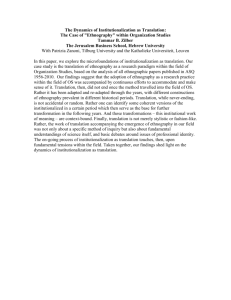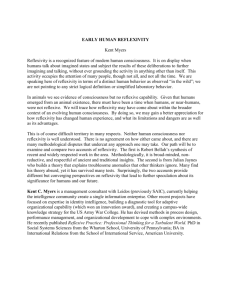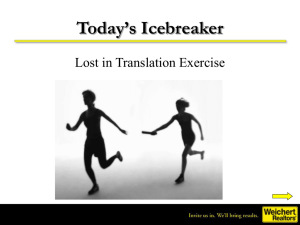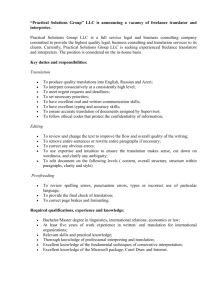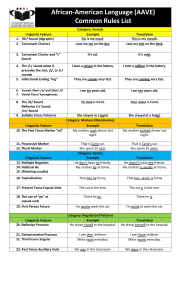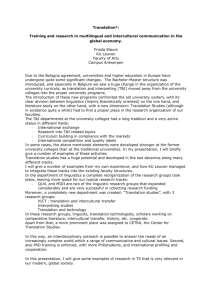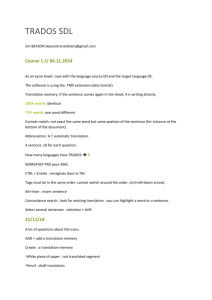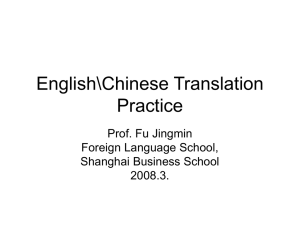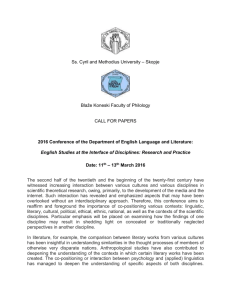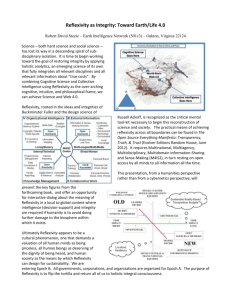CATS-Call for Papers 2016
advertisement
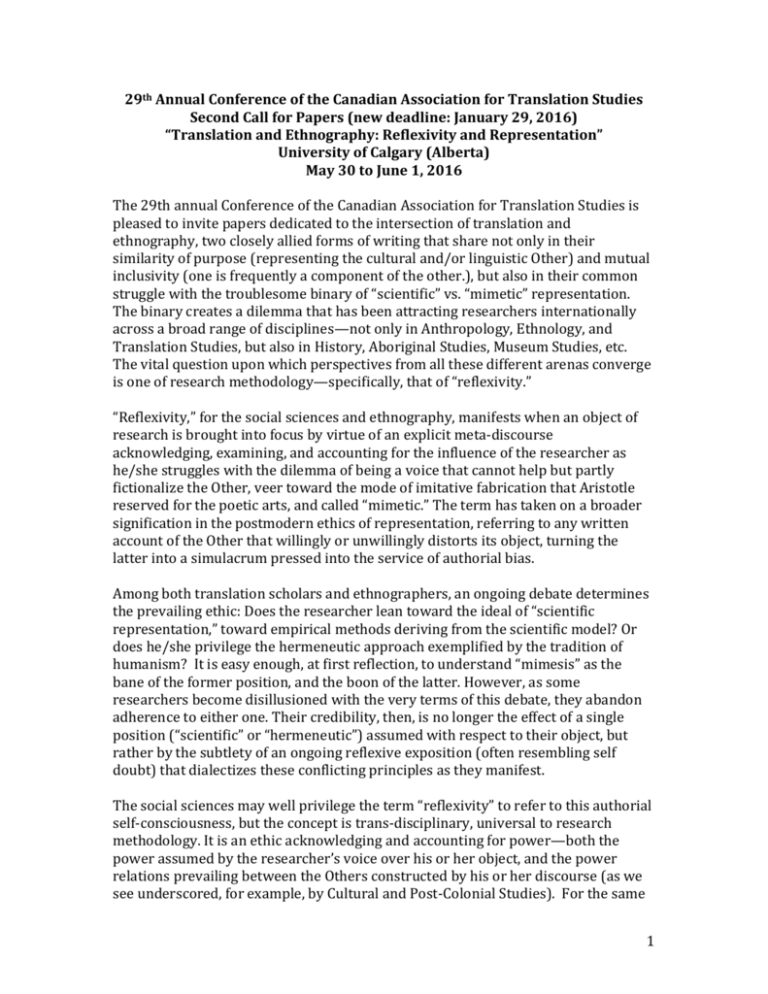
29th Annual Conference of the Canadian Association for Translation Studies Second Call for Papers (new deadline: January 29, 2016) “Translation and Ethnography: Reflexivity and Representation” University of Calgary (Alberta) May 30 to June 1, 2016 The 29th annual Conference of the Canadian Association for Translation Studies is pleased to invite papers dedicated to the intersection of translation and ethnography, two closely allied forms of writing that share not only in their similarity of purpose (representing the cultural and/or linguistic Other) and mutual inclusivity (one is frequently a component of the other.), but also in their common struggle with the troublesome binary of “scientific” vs. “mimetic” representation. The binary creates a dilemma that has been attracting researchers internationally across a broad range of disciplines—not only in Anthropology, Ethnology, and Translation Studies, but also in History, Aboriginal Studies, Museum Studies, etc. The vital question upon which perspectives from all these different arenas converge is one of research methodology—specifically, that of “reflexivity.” “Reflexivity,” for the social sciences and ethnography, manifests when an object of research is brought into focus by virtue of an explicit meta-discourse acknowledging, examining, and accounting for the influence of the researcher as he/she struggles with the dilemma of being a voice that cannot help but partly fictionalize the Other, veer toward the mode of imitative fabrication that Aristotle reserved for the poetic arts, and called “mimetic.” The term has taken on a broader signification in the postmodern ethics of representation, referring to any written account of the Other that willingly or unwillingly distorts its object, turning the latter into a simulacrum pressed into the service of authorial bias. Among both translation scholars and ethnographers, an ongoing debate determines the prevailing ethic: Does the researcher lean toward the ideal of “scientific representation,” toward empirical methods deriving from the scientific model? Or does he/she privilege the hermeneutic approach exemplified by the tradition of humanism? It is easy enough, at first reflection, to understand “mimesis” as the bane of the former position, and the boon of the latter. However, as some researchers become disillusioned with the very terms of this debate, they abandon adherence to either one. Their credibility, then, is no longer the effect of a single position (“scientific” or “hermeneutic”) assumed with respect to their object, but rather by the subtlety of an ongoing reflexive exposition (often resembling self doubt) that dialectizes these conflicting principles as they manifest. The social sciences may well privilege the term “reflexivity” to refer to this authorial self-consciousness, but the concept is trans-disciplinary, universal to research methodology. It is an ethic acknowledging and accounting for power—both the power assumed by the researcher’s voice over his or her object, and the power relations prevailing between the Others constructed by his or her discourse (as we see underscored, for example, by Cultural and Post-Colonial Studies). For the same 1 reason that the term permits a dialogue between ethnography and translation, it invites further dialogue with any number of germane disciplines: How, for example, have older disciplines such as History, anthropology, and literary studies conceived this ethic, and what might their ongoing discourse on the reflexive process contribute to ethnographers and translation scholars? How might this ethic carry forward into disciplines either born of or developing concurrently with ethnography and Translation Studies, such as auto-ethnography and interpretation? Further, at the intra-disciplinary level, might a focus on reflexive practices help to overcome the traditional biases that have prevented certain communal objects—translation and interpretation specifically—from illuminating each other? Finally, there are empirical methods within Translation Studies (research involving technical interface with corpora, for example) and its related disciplines, such as terminology, that privilege the principle of scientific representation, that take special measures to protect their process against the skewing forces of researcher subjectivity. How do these disciplines address the question (perhaps now “the problem”) of mimesis? Other questions: Might ethnography’s emerging discourse on reflexivity help translators and translation scholars view their own modes of self-interrogation—mired in ancient theological and political metaphors (“faithfulness”, “traduttore traditore”)—in a more contemporary light? How does reflexivity manifest in translated and ethnographic texts, and how does it influence writing strategies in both? Are these strategies comparable? To what extent do protective measures imposed upon methodology immunize research against subjective influence? How does reflexivity manifest within these methods? What type of reflexive process is at work in translations and ethnographies that use mimesis for the purpose of experimentation, that transgress (from the point of view of scientific standards) for the purpose of representing or translating cultural, textual, or linguistic effects that are not easily conveyed from one language or culture to another? What type of reflexive process is at work, for example, in ethnographic or translated works that fall under the category of pastiche, parody, and satire? How do the shadows that they cast help define the norms governing “serious” texts? ... Papers should not exceed 20 minutes. Your proposal (in English, French or Spanish) should include the two following documents: 1) a 300-word abstract in Word format, which will be included in the conference program 2 2) The form printed below, which is to be filled out. The information you provide in the form will not be used to evaluate the quality of your proposal; rather, this information will be printed in the grant application, which CATS will submit to the Social Sciences and Humanities Research Council of Canada (SSHRC). Please send your proposal via email to the organizers—Ryan Fraser (ryan.fraser@uottawa.ca) and Philippe Caignon (pcaignon@alcor.concordia.ca)—by January 29, 2016. Surname (Family name) Given name (First name) Affiliation country Affiliation Diplomas (please start with the most recent) 4 LINES MAXIMUM Positions recently held, as well as positions related to this event (please start with the most recent) 5 LINES MAXIMUM Recent publications as well as those related to this event (please start with the most recent) 10 LINES MAXIMUM Title and abstract (100 -150 words) Relevance of your paper to the conference (100 - 150 words) 3
